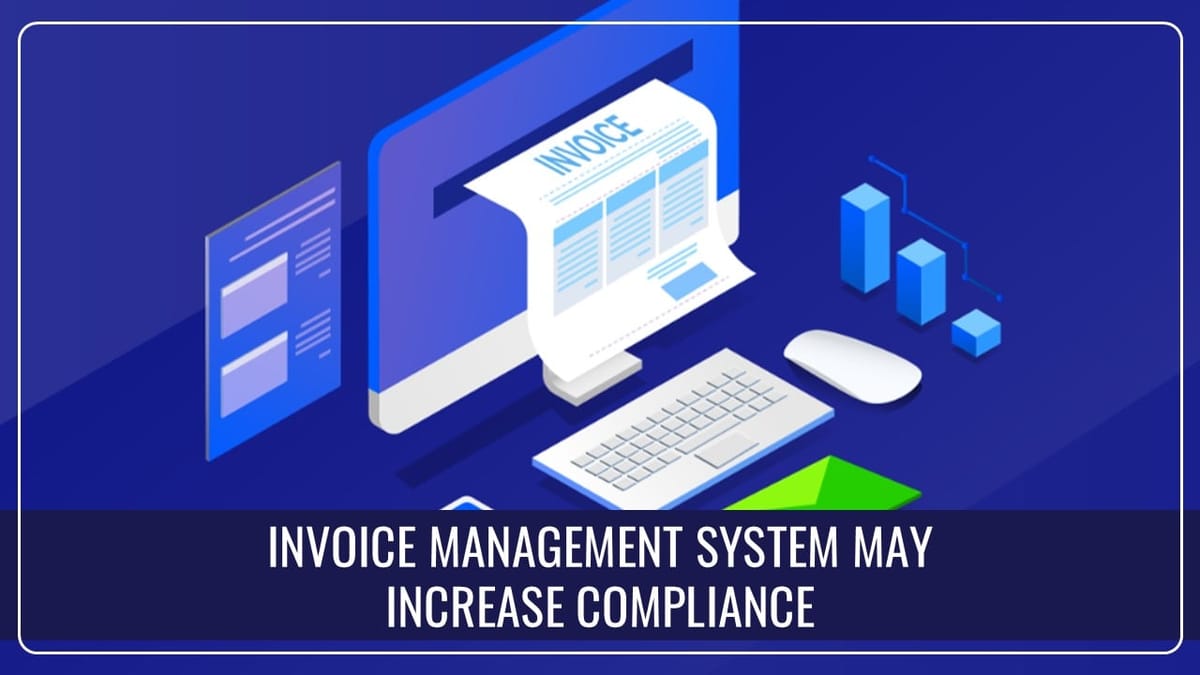Reetu | Oct 21, 2024 |

IMS may increase Compliance for GST Assesses; Says Tax Experts
The initiative to improve the Input Tax Credit (ITC) ecosystem through the Invoice Management System (IMS) may add an extra layer of compliance to GST assesses, according to tax experts.
According to the GST portal, the new system will let taxpayers match their records/invoices to those supplied by their suppliers in order to obtain the relevant ITC. Taxpayers can now use this option to accept, reject, or hold invoices pending in the system for subsequent use as needed. The first GSTR-2B (an auto-populated ITC generated by the GST portal for all normal taxpayers) based on IMS activities would be generated on November 14 for the October return period.
Experts believe that, while IMS’s stated objective is to eliminate notices due to input tax credit mismatch, it will undoubtedly add to taxpayers’ compliance activities, along with the existing input tax credit reconciliation prior to finalizing their GSTR 3B. Also, IMS in its current version does not allow for partial acceptance, rejection, or pending transactions. At the same time, the current form of IMS is recipient-centric, necessitating the creation of a dashboard and visibility for suppliers.
Another concern is credit notes. It states that these are the most important aspects of IMS that will affect all taxpayers.
If the supplier issues a credit note that reverses his GST liability, the supplier either has to accept or reject the Credit Note. He has no option except to keep the Credit Note pending. For example, if the supplier issues the Credit Note on October 31 and the recipient receives and accounts for it on November 2, he should reject the Credit Note in the October return, as of October 31.
“If the recipient rejects the credit note owing to IMS’s mandate, the supplier becomes obligated to pay the corresponding GST, which he ideally is not liable to pay. This major financial implication should be addressed by GSTN within the next week, or it may cause difficulty for all taxpayers,” a tax expert stated.
Furthermore, he expressed worry that assumed acceptance of credit notes in the absence of action may result in ITC reversals for recipients. In addition, the “inadvertent rejection of credit notes could unjustly inflate supplier tax liabilities,” he added.
According to GST Network (the IT backbone of the indirect tax system), IMS is an optional feature, and recipients are not required to take any action. If no action is taken, all transactions in IMS will be treated as deemed accepted.
The GSTN will form a committee of trade representatives to receive suggestions on IMS and show open issues that require clarification. Reverse charge and import-related entries (from the ICEGATE and DGFT portals) will be routed straight to Form GSTR-2B and will not be included in IMS.
In case of any Doubt regarding Membership you can mail us at [email protected]
Join Studycafe's WhatsApp Group or Telegram Channel for Latest Updates on Government Job, Sarkari Naukri, Private Jobs, Income Tax, GST, Companies Act, Judgements and CA, CS, ICWA, and MUCH MORE!"